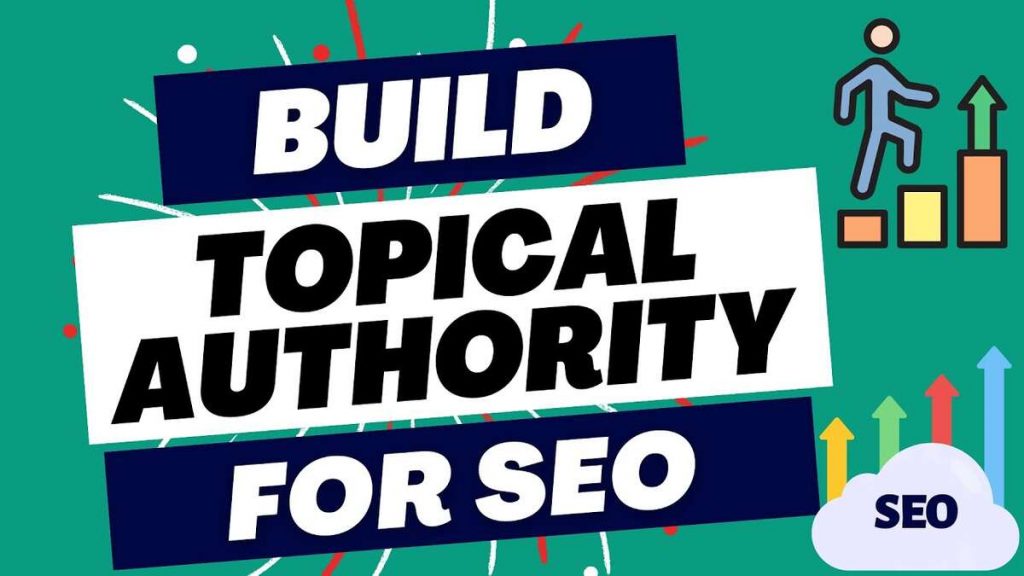In the ever-evolving landscape of digital marketing, mastering SEO topical authority is a game-changer for boosting organic search traffic. This comprehensive guide dives into actionable strategies that empower you to elevate your website’s authority, enhance user experience, and skyrocket your rankings on search engine results pages (SERPs). Discover the tactics to become a dominant force in your niche, and witness the transformation of your online visibility and credibility.
Introduction
Picture this: you’ve crafted a remarkable website, but it remains hidden in the labyrinth of the internet, longing for recognition. That’s where SEO topical authority comes into play. This article unravels the mystery behind building this authority and unveils the roadmap to amplify your organic traffic from search engines.
Understanding SEO Topical Authority
Before we delve into the “how,” let’s grasp the concept. SEO topical authority refers to your website’s expertise and credibility within a specific subject or topic. It’s not just about keywords; it’s about becoming the go-to resource that search engines and users trust when seeking information in your niche.
Importance of Topical Authority
Why should you care about topical authority? Well, search engines are on a mission to deliver the most relevant and reliable results to users. When your website exudes authority, search engines will enthusiastically showcase your content to those seeking insights in your domain. This translates into more eyes on your content, increased engagement, and a surge in organic traffic.
Steps to Build SEO Topical Authority
1. Comprehensive Keyword Research
Keywords lay the foundation. Identify long-tail keywords and phrases that resonate with your audience. Tools like SEMrush and Ahrefs can be your compass, guiding you to keywords with optimal search volume and low competition.
2. High-Quality Content Creation
Content is king, but quality is the crown. Craft in-depth, value-packed articles that answer users’ burning questions. Don’t skim the surface; dive deep. Become the one-stop hub that quenches your audience’s thirst for knowledge.
3. Internal Linking Structure
Think of internal links as the roadmap within your kingdom. Strategically interlink your content to guide users and search engines through your treasure trove of insights. This also distributes authority across your pages.
4. External Backlinking Strategy
Just as alliances bolster a kingdom’s influence, backlinks from reputable websites boost your SEO authority. Network with others in your field, guest post, and create link-worthy content that others can’t resist referencing.
5. Social Signals and Engagement
In the digital realm, social signals are your cheers from the crowd. Active social media engagement and sharing amplify your content’s visibility. The more your content is shared, liked, and commented on, the more search engines perceive it as valuable.
6. User Experience and Site Performance
A seamless user experience is your red carpet. Optimize your site’s speed, navigation, and overall usability. A clunky site repels visitors, while a smooth one beckons them to explore further.
7. Mobile-Friendly Optimization
In the mobile-centric era, a mobile-friendly website is non-negotiable. A responsive design ensures your content shines, whether it’s viewed on a desktop, tablet, or smartphone.
Measuring and Monitoring Topical Authority
Building authority is a journey, and every ruler needs a scepter to measure their influence. Tools like Moz’s Domain Authority and Google Analytics provide insights into your progress. Monitor your rankings, traffic, and engagement metrics to track your ascent to the throne of authority.
Common Challenges and How to Overcome Them
The path to authority is not without obstacles. Content saturation, algorithm changes, and fierce competition can test your mettle. Stay resilient, adapt to changes, and keep refining your strategies.
Conclusion
Congratulations, you’re now armed with the knowledge to ascend the ranks of SEO topical authority. By following these battle-tested strategies, you’ll witness the steady rise of your organic traffic. Remember, becoming a trusted source in your niche is a journey, but the rewards are boundless.
Q1: How long does it take to build SEO topical authority?
A1: Building SEO topical authority is a gradual process that varies based on factors like the competitiveness of your niche, the quality of your content, and your consistency in implementing strategies. Generally, you might start noticing improvements in a few months, but significant authority might take a year or more to establish.
Q2: Can I focus on multiple topics for authority building?
A2: While it’s possible to cover multiple topics, it’s advisable to focus primarily on one main topic to establish strong authority. This allows you to cater to a specific audience and gain deeper expertise in that area. However, you can explore related subtopics to broaden your content strategy.
Q3: What role do influencer collaborations play in building topical authority?
A3: Influencer collaborations can significantly boost your authority by tapping into their existing audience and credibility. When influencers endorse your content, it lends authenticity and expands your reach. Choose influencers relevant to your niche and collaborate on content that adds value to your audience.
Q4: Is it better to update existing content or create new content?
A4: Both updating existing content and creating new content have their merits. Updating old content keeps it relevant and can improve its search rankings. Creating new content allows you to address emerging trends and expand your topical coverage. A balanced approach that combines both strategies is often the most effective.
Q5: How often should I perform an SEO audit for my website?
A5: Regular SEO audits are crucial to ensure your website’s health and performance. Depending on the size of your website and the frequency of content updates, performing an audit every six months to a year is recommended. Audits help identify technical issues, SEO improvements, and areas where you can enhance your topical authority.




